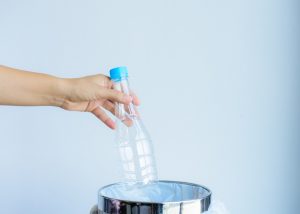March 11, 2020

Sartorius has signed up to a Europe-wide agreement focused on improving how single-use plastics are recycled.
The European Plastics Pact, which was launched last week, is a voluntary scheme designed to improve how plastic is recycled. Signatories will collaborate to develop processing techniques and common standards.
A Sartorius spokesman told us, “We have kicked off an initiative to build our plastic strategy for our single-use products on the basis of a circular plastics economy. This strategy is oriented toward the aspirational objectives of the European Plastics Pact and will include determining the exact amount of plastic waste and ways to reduce it.

Image: iStock/spukkato
“Within this initiative, we have established collaborative working groups with selected suppliers, end-users and waste collectors, among others. Besides, we are defining the data collection stream and reporting structure that will enable us to report on our targets.”
Biopharma impact
According to the public-private partnership behind the pact, waste resulting from biopharmaceutical single-use technologies accounts for only 0.01 percent of the volume of annual plastic waste generated.
Nevertheless, the organization says recycling is a growing concern for the biopharmaceutical industry.
The challenge – as we reported last year – is that single-use biopharmaceutical manufacturing systems are difficult to recycle. Partly this is because they are used to make medicines, and hence need to be handled safely.
However, another challenge is the fact that such systems combine several different types of plastic, each of which needs to be processed and recycled in a different way.
To address this, Sartorius’ plan is to design its single-use systems to be as recyclable as possible. The firm also plans to reduce the amount of ‘virgin’ plastic it uses by using recycled material where possible.
The firm’s spokesman told us “In line with the objectives of the European Plastics Pact, we plan to increase our recycling rate by collection and sorting. Moreover, we will use recycled plastics for our packages and products whenever possible and appropriate.
Mixed reaction
The pact is voluntary. However, according to the management organization signatories will be required to keep a record of their efforts. In addition, a secretariat will monitor and report progress.
The Pact met with mixed reaction from environmental groups.
Greenpeace told us it shares the view expressed by the BreakfreefromPlastic movement, explaining it welcomes some of the ambition of the Pact, but regrets the lack of involvement of civil society in the process.
BreakfreefromPlastics has also pointed out that “this initiative remains fully voluntary and can never replace strong regulatory measures.”
Sartorius’ spokesman told us “In our view, the European Plastics Pact covers both recycling and reducing plastic use.”
About the Author
You May Also Like



